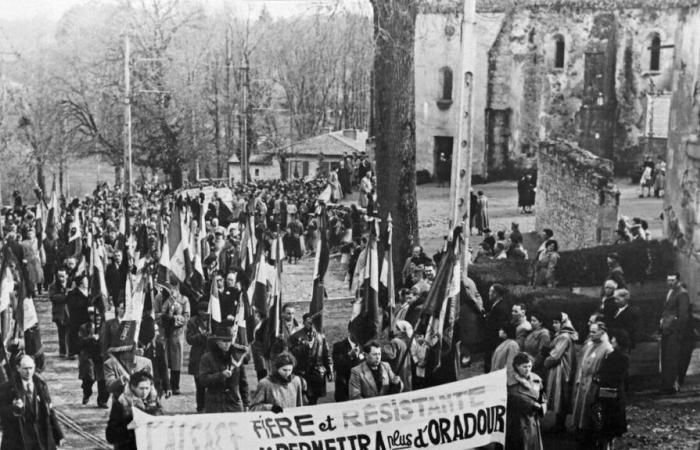The month of August 1942 was a turning point in the Second World War, in Alsace and Moselle. On August 25, 1942, Robert Wagner, the head of civil administration in Alsace, wrote a decree establishing compulsory military service in the region. The Moselle suffered the same fate in the days that followed. These decisions led to an acceleration of the incorporation of locals into German troops. Thus, 130,000 men, mostly young people, fought in the German army. Around 40,000 will never return home. Others will be tried for carrying out the orders.
Traveling to Strasbourg this Saturday, November 23, 2024, President Emmanuel Macron, who also announced the pantheonization of Marc Bloch, called on Saturday to “recognize and teach” the tragedy of these “Despite us”, as these Alsatians and Mosellans forcibly incorporated by the Nazis are called. “These children from Alsace and Moselle were captured, dressed in a uniform that they hated, in the service of a cause which made them slaves, instruments of a crime which also killed them, threatened with reprisals if they attempted to flee »he declared in a speech at the university palace in Strasbourg, adding that their “tragedy must be named, recognized, and taught because it is that of the Nation”.
Read also: 80 years ago, this forgotten French town experienced a terrible massacre
A little-known story
The fate of the Despite Us has left its mark on the regions concerned, but does not occupy a large place in the national story. “It’s one of those memories that was hidden because it was embarrassing. After the war, France is in a period of reconstruction and the fact that national citizens have taken German uniform is disturbing, explained Christophe Prime, historian at the Caen Memorial, interviewed in 2022 by West France . This was born from a lot of misunderstandings: as in the case of the deportees, the people knew what they had experienced and could talk about it among themselves, but communication is more difficult with others, those who have not been in the same situation. On top of that, there is a part of the population that does not want to see the reality: for them, if you have worn the German uniform, you are a collaborator. We always feel, among the descendants of the Despite-us, a frustration linked to this lack of recognition. »
Families under threat
However, these men didn't really have a choice. The German army did not hesitate to be harsh with the recalcitrants. “Those who were captured were sent to a re-education camp in Schirmeck (Bas-Rhin). Otherwise, it was their family who went to camp. Many young people did not want to take the risk that their loved ones would suffer reprisals of their choice”says the Memorial historian.
Once the German uniform was on, the Despite Us were sent to the different units. From 1942, they were mainly sent to the Eastern Front, to compensate for the heavy losses suffered by the Waffen-SS during the fighting with the Red Army. If they were captured, they could not count on preferential treatment. “For the Soviets, when you were part of the Waffen-SS, whether you were French or German made no difference and you were summarily executed”indicates Christophe Prime.






